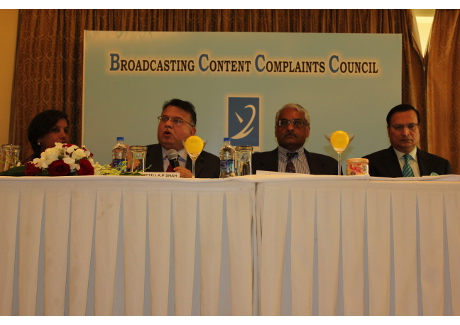The Broadcasting Content Complaints Council (BCCC), the independent self-regulatory body for non-news general entertainment channels set up by the Indian Broadcasting Foundation (IBF) in June 2011, underlined its stance on inappropriate portrayal of women and children on TV at a media meet in Delhi on 23 January.
BCCC chairperson Justice (retd.) AP Shah said, “The BCCC has taken a serious note of complaints relating to women and children and issued advisories in this regard. Broadcasters should strictly avoid showing children below the age of 12 dancing to item numbers. The treatment of children during the course of the programme is also important. Stereotyping of women should be discouraged in TV programmes.”
He added, “We have made certain suggestions and recommendations to the Ministry of Information & Broadcasting with regard to Clause 10.2 of the Uplinking Guidelines. We feel a provision for graded financial penalty can be introduced in for serious violations by channels.” The BCCC has submitted a report to the Ministry of Information and Broadcasting on the subject on 22 January 2013.
Indian Broadcasting Foundation (IBF) president Man Jit Singh underlined the role of BCCC in self-regulation, and pledged the support of broadcasters. He said, “Self-regulation is the most appropriate way to handle content on television. The BCCC is a truly independent Council that looks into complaints from all over the country. The broadcasters take all recommendations, directions and advisories of the BCCC very seriously and will continue to support the Council’s efforts.”
BCCC Member Shabana Azmi added, “Freedom of speech and expression, especially artistic freedom, is very important and a democratic right. This freedom, however, comes with responsibility, and this is where BCCC plays an important role.” She noted that there has been ‘full compliance of the BCCC’s directives’ by member channels.
There has been a rapid increase in the number of complaints being handled by BCCC in view of the various measures implemented by the IBF’s member channels and the increased awareness amongst the Indian television audience.
Till 30 November 2012, BCCC said it received 8,628 complaints and suggestions, including 1,072 ‘Specific Complaints’, and has disposed of ‘an overwhelming number of these’ to the satisfaction of complainants.

